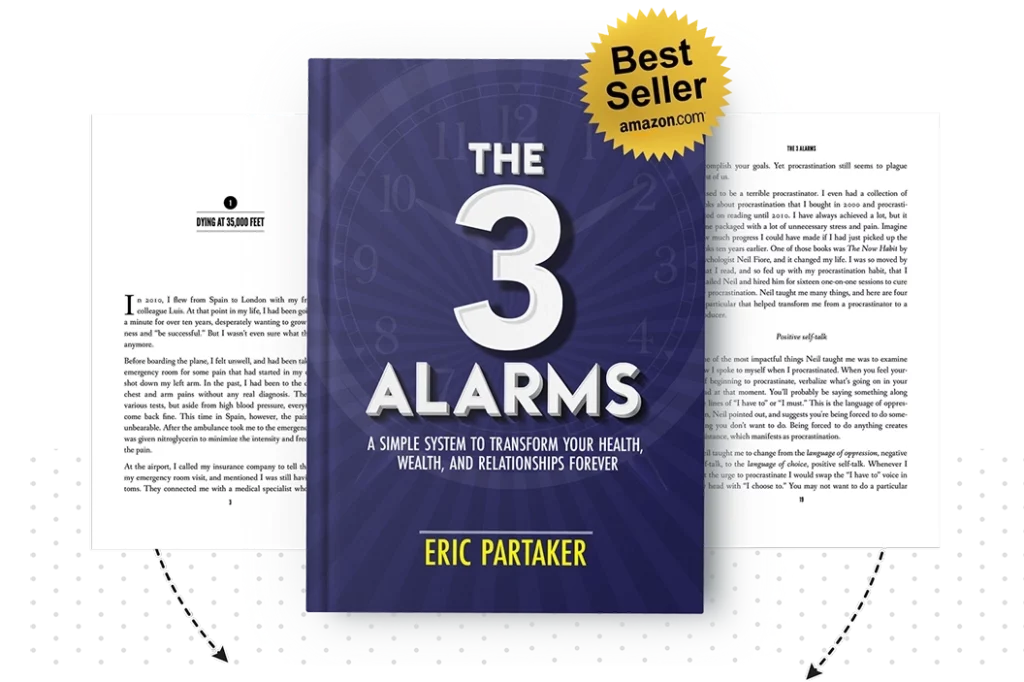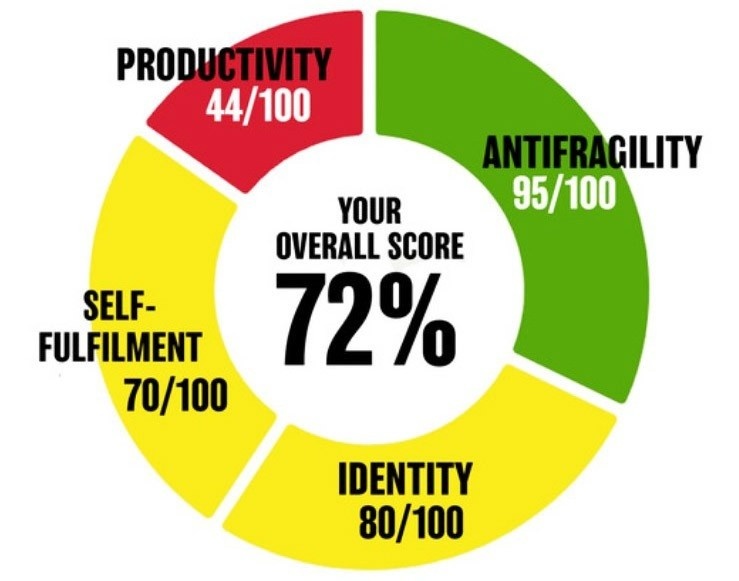Do you want to know how to handle money? Today you’ll learn how to handle money better and be in a better position to safeguard your financial future.
KEY POINTS
Get To Grips With Your Cash Flow – Where is your money coming from and where is your money going?
Are You Budgeting Effectively? – Create a budget that reflects the priorities and financial goals of the best version of you.
Create a Savings Plan – Pay yourself first following the equation: income minus savings equals expenses.
Start Investing – Create an emergency fund of 1% of your income, and invest it.
Get Out Of Debt – Start paying off the debt that you could pay off the soonest.
Review Monthly – Schedule a monthly finance review meeting.
FREE DIGITAL BOOK
Grab a copy of my Amazon Best Selling Book The 3 Alarms. Click Here
TRANSCRIPT
Do you want to know how to handle money? Well, by the end of today’s episode, you’ll not only know how to handle money better, but you’ll also be in a better position to safeguard your financial future. Hi, my name is Eric Partaker and I’ve been recognized as one of the top entrepreneurs in the country, as well as the CEO of the year. And, I’m also the author of two best-selling books, including The 3 Alarms. And, make sure that you stick around for the whole episode today, because I’ll be revealing some things in this episode that you haven’t heard anywhere else.
So, step number one in getting a better handle of your money is to understand, well, where is your money coming from and where is your money going? So, this is often referred to as your cash flow. And, it’s simply looking at how much cash is coming in and how much cash is going out. Or in other words, your income and your expenses. Now, most people they’ll just have a single source of income. Take a sheet of paper, that’s a single line, okay, this is how much income that I have in a month.
And then below that, simply list out what are all the expenses and try to group those into their natural categories. So, you’ll have expenses which are more, what they call fixed, in that they don’t really change much. So, this could include your rent or your mortgage, if you own your home, your estimated utilities costs, or a gym membership. Batched together, all of those expenses that pretty much don’t change into one category of expenses. And then, below that you have what you would call your variable expenses. So just like the word implies, these are just expenses that vary. They can change from month-to-month. It could be going out money, or money that you spent on food, or clothing, things like that. So step number one, to get a better handle of your money is to understand where is your money going, so your cash inflows and your cash outflows, or your income and your expenses. And, you can do that on a single sheet of paper. Number two, you need to agree your priorities and your financial goals. So, looking at that list of expenses, you need to ask yourself, “Are these expenses that I want to keep?” “Do these expenses reflect the priorities in my life?”
And, I want to challenge you here. Don’t just ask, “Do they reflect the priorities in my life from the vantage point of your current self?”, but I want you to think of you at your best, your best version of you, your best self. Do those expenditures reflect you at your best, the priorities of the best version of you? And, that’s a yes or no. And then, what adjustments would you make to those priorities? And then similarly, what financial goals do you have? So, we need to understand what are our priorities for where our money should be going, and what are our financial goals. So, that’s step number two.
Number three, we need to create a budget. So, once we understand our cash inflows and outflows our income and expenses, what are our priorities? What are our goals? We need to create a budget. What would we like to do going forward? And, a budget should include the expected income that we’re going to have each month, and it should include in the expenses, how much we’re allowing ourselves to spend in each of those categories every month. And then, when we get to the end of a month, we can check and see how close, where our budget estimations with what we actually spent. And then we can make adjustments, either spend less or increase what we’re targeting within the budget, within a particular category. But, we need to create that budget first, before we can start measuring our actual progress against it.
Number four, I want to completely flip how you’ve thought about this before. We need to create a savings plan, but we do that by changing the equation that we’ve been taught. So, we were taught as kids and growing up, that income minus expenses equals savings. So, savings is something that’s left over in the end. That’s not how it should be. What the equation should be, and this is also mathematically accurate as well, is that income minus savings equals expenses. And, the reason we want to flip that, those two around, the expenses and the savings is because it forces us to prioritize and think of savings first. Pay yourself first, before you start paying money to other people. When you go and you eat out somewhere, you’re paying someone else. When you go and you buy some clothing, you’re paying someone else. Pay yourself first, take your income, determine your savings target, pay that to yourself first, and then your expenses. Now you may say, “Well, I don’t have any capacity to save.” But, I want you to get into the habit of saving. And, I want you to start with just 1%, even if that’s all that you had. So, let’s say you have income of $2,000 in a month, start with saving at least just 1% per month. So, 1% is only $20. 1% of 2000 would be $20, and you absolutely do have $20. You could save $20 to the side. Just 1%, just to get into that habit of saving.
Number five, to better handle your money, I want you to build an emergency fund. A fund for when things go completely wrong, and perhaps you’re not able to work as much as you would like, or you don’t have any work at all. And, it can start with that 1% that you’re saving monthly. Just start building up an emergency fund. Ideally, you would have enough money to cover yourself for at least a few months, all of your main expenses if you were to lose your job, or if the company you were working for, were to suddenly no longer exist. So, create an emergency fund and use that 1% that you’re starting to save monthly, and it can be more than that, by the way. I mean, don’t keep it at 1%. 1% is just to get you into the habit of doing it by demonstrating that you can, if you start small, do it already right now. But, if you could be saving five or 10%, by all means, you should be doing that as well. But, build an emergency fund so that you can protect yourself in case things go wrong. And, if you’re liking what you’re hearing this video so far, then let us know, hit like down below.
Number six is to invest your money. So, if you start saving and you start also creating an emergency fund, you can also start taking a percentage and investing that money. And, there’s lots of different places that you can invest money. You could invest with an index fund like Vanguard, for example. There’s loads that you could find, if you just do a quick Google search. But the point is, is get into the habit of investing at least a portion of your money on a monthly basis, because that money compounds over time. That’s what leads to massive wealth creation over time, is the power of that compounding.
Number seven, if you have debt, we need to pay that debt off. And, what I would suggest that you do is start paying off the debt that you could pay off the soonest if you were to maintain your minimum payments on all of your other debts, and then put any excess on one debt. But the secret is, try to pay off the one that you could pay off the soonest. There’s a psychological effect of seeing one of your debt accounts just disappear completely.
That’s very, very, very positive. And so, once again, maintain your minimum payments, because they’re the minimums, so you have to do that across all of your debts. But then, anything more that you can pay beyond the minimum, pick the debt whereby you would pay that off the soonest, if you were to dedicate all that extra expenditure towards that one debt, and then pick the next one.
And number eight, last but not least, to better handle your money, you need to schedule a monthly meeting, where you look at that budget that you created, you look at your expenditure against that budget. You make a decision on, are we saving the same amount? Are we investing the same amount? Are we changing anything with our debt repayments? You need to do that by scheduling a monthly meeting. And, I would literally schedule a finance review meeting, a kind of handling money meeting in your calendar once a month as an appointment with yourself and anybody else in your household that makes sense to join that appointment, to join that meeting, and make sure you’re reviewing all of this stuff on a monthly basis. This is how you get better at handling money. And, I’d love to hear from you. So, don’t forget you get to leave a comment and a rating as well. And, if you’d like to get a copy of my new book, The 3 Alarms, please head over to my website at ericpartaker.com. That’s E-R-I-C, ericpartaker.com, where you could pick up a free digital copy of my new best-selling book, The 3 Alarms.




